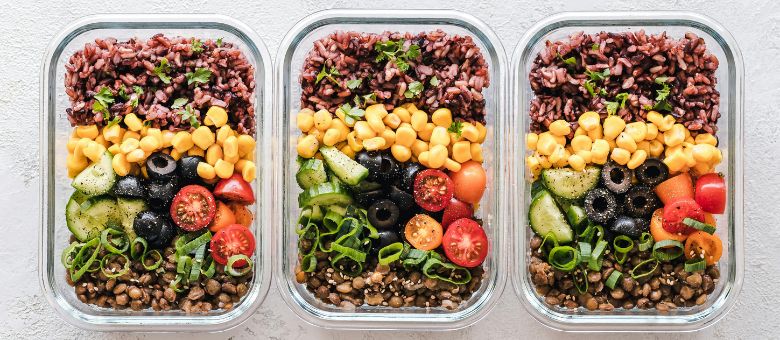
Meal Planning Tips For Older Adults
Eating nutritious meals every day is hard work. Cooking takes time; sometimes, it’s easier to throw in a premade frozen dinner or prepackaged meal. Instead of waiting until it’s time to eat to make your food, consider meal planning to help you cut down the time you spend in the kitchen while still getting the nutrients you need.
Nutrition and Health
What you eat plays an essential role in your health. Diet and eating come with complex feelings and emotions, but at its core, nutrition is what fuels your body. The goal for nutrition is to eat a well-balanced diet that encompasses all the vitamins and minerals you need to properly fuel your body. Eating a healthy diet can also help lower the risk of health concerns like high blood pressure, diabetes, and heart disease.
Every individual's nutritional needs can vary depending on their overall health, age, and dietary restrictions. According to the NIH National Institute on Aging (NIA), older individuals’ diets should generally include food from all food groups, emphasizing foods rich in potassium, calcium, vitamin D, and dietary fiber.
Tips For Meal Planning
Meal planning is the process of planning and preparing meals ahead of time that you will use throughout the next few days or the week. One common barrier to eating healthy for people of all ages is knowing what to eat and having the energy to make healthy meals when hungry. Meal prepping can remove that barrier by giving you pre-made healthy meals on the go so you know exactly what to eat and when.
Start Small
Meal planning is a habit. Like any habit, it’s best to start small. Instead of three meals a day with snacks for an entire week, plan a meal a day or a few days at a time. For example, maybe you start with planning dinner for the next three days. Then, after a few weeks, plan breakfast and dinner. Eventually, you can work your way up to preparing all your meals and snacks in advance.
Consider Your Food Groups
One of the hardest parts of meal planning is knowing what meals to plan and prep. When considering your meals, consider your five food groups: fruits, vegetables, grains, proteins, and dairy. Your goal is to have something from every food group in your three main meals (breakfast, lunch, and dinner). You don’t have to eat all five in one meal, but they should be present in the combination of your meals.
Write It Down
It may feel tedious, but it’s important to write down the meals you plan, not only the name of the meal but the specific ingredients. Writing out what’s in each meal will help determine if you’re hitting your food groups. It also helps with grocery shopping. When you write down the ingredients you’ll need for your meal, you can quickly see what you have at home and what you need to buy.
Consider Where You Shop
Fresh food generally tastes better and makes you feel better. If possible, purchase foods at farmers' markets or markets like Sevanada. Buying fresh also reduces your risk of eating spoiled food that could cause GI issues like bloating or upset stomachs.
Save And Store Recipes
Don’t reinvent the wheel every week when planning. Save and store your favorite recipes with physical recipe cards or in an online journal. Having go-to recipes that you enjoy will make planning and cooking easier.
Don’t Shy Away From Spices
Herbs and spices are the key to making your meals taste fresh and new. Using the same ingredients but changing how you flavor those ingredients can completely change a meal without too much extra work. However, be careful about how much salt you use because it can affect your blood pressure.
Pre-Portion Meals
Once you decide what meals to cook, pre-portion each meal into separate containers. That way, when it’s time to eat, all you have to do is take out the container and heat it up. If you make something with a sauce or dressing, wait to put it on until you're about to eat it to keep your food from getting soggy.
Use Your Freezer
Sometimes, you’ll meal prep and make too much or decide to make something fresh. Instead of letting the food go to waste, put it in a freezer-safe container and put it in your freezer. Keeping food in the freezer keeps it safe from spoiling and wasting.
Meal Preparation With Visiting Angels
Visiting Angels is dedicated to helping seniors live their highest quality of life. That includes ensuring our clients are eating nutritious meals that they enjoy. Our team of compassionate caregivers is happy to help clients with meal prepping, grocery shopping, finding recipes, cooking, and cleaning up afterward.
Contact our Atlanta East office to learn more about our at-home care services.
